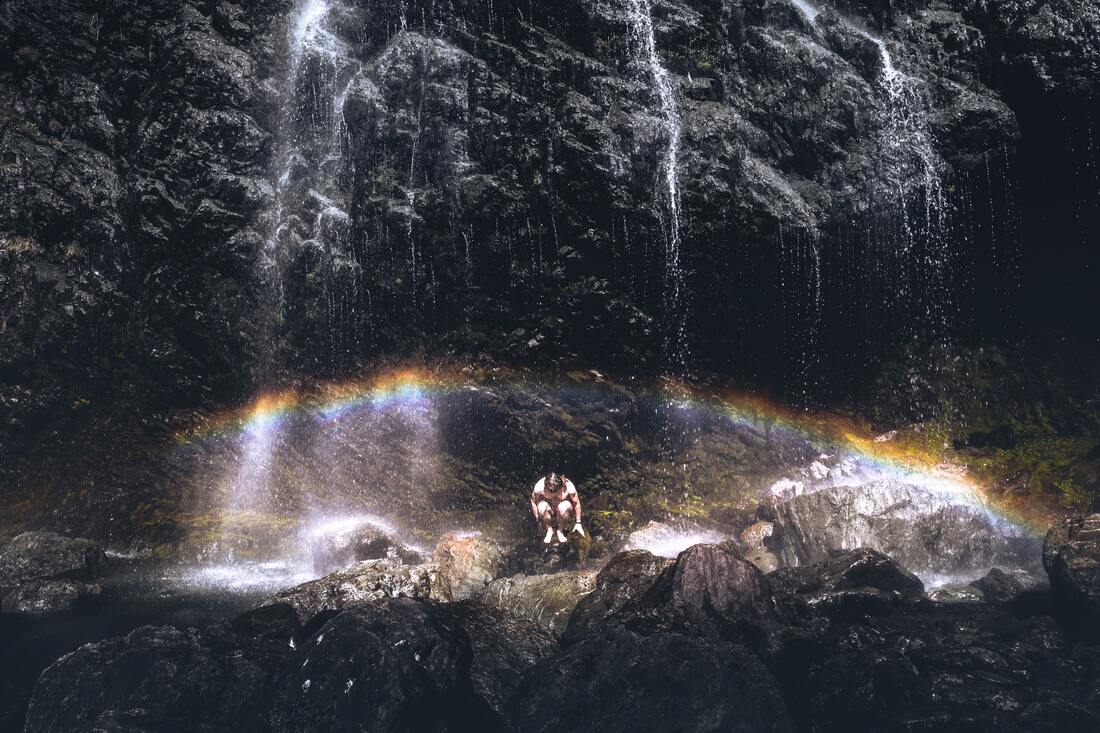Now that I have your attention, let me tell you about fragmented truths, or fragments of truth. First, rumour. Originating from the Latin word for ‘noise’, rumour is an exchange of information whose accuracy remains unestablished (Brouksy, 2014). The content within and the behaviour around rumour sit on the fringes of fact and control; both fragile and ephemeral (Brouksy, 2014). Such information tends to arise among people who do not necessarily know each other; they are merely vehicles for the transmission of highly charged information (Stewart & Strathern, 2020). “Rumours often circulate most intensively at times of uncertainty or unrest” (Kroeger, 2017). Rumours in this sense are a reflection of particular beliefs and views about how the world works at a particular time and place (Kroeger, 2017). Historically, different narratives emerge during crises (Ali, 2020). What do the rumours of today uncover or indicate about our present? Is it a loss of confidence in established authorities (Gusterson, 2017)? How do rumours start and why do some flourish while others fizzle out? Truth in modernity is characterised by the value of personal experience and opinion over data-driven science (Ofri, 2021). Vaccine Anthropologist Heidi Larson views rumours as ecosystems that need to be rehabilitated in their entirety - not simply the pulling and removing of one thread from the interwoven network. How do we contain outbreaks of misinformation? We build trust and truth chains. Trust, says Larson, is a currency that can be created, eroded, and rebuilt. We strengthen trust by listening to the stories behind the rumours, and not falling into the trap of debunking falsehoods and fears in the face of despair. Next, gossip. Unlike rumour, gossip tends to be shared in more intimate situations or spaces and is often supported by evidence, although this is difficult to verify as it draws on biases and prejudices. Also unlike rumour, gossip is not usually rooted in past experience, but rather consists of up-to-date knowledge, an element of cleverness, and the ability to be vigilant (Monson, 2020). It requires wit, verbal skill, and dramatic flair (Barrett, 2020). Essentially, “humans like to tell stories, and gossip is an attempt to put pieces together to give shape to a story” (Stewart & Strathern, 2020). As a form of sensing and meaning-making, gossip helps us fill in the gaps in our knowledge, conjecture, speculation, and hunches (Drążkiewicz, 2020). It is a mechanism for enhancing social solidarity and a tool for advancing individual reputation or status (Besnier, 2019). Rusty Barrett (2020) traces the development of ‘tea’ as a way of referring to gossip within gay communities and amongst drag queens. Barrett looks at the different positionalities of tea: it can be poured, served, sipped, and spilled. These are all ways of engaging with gossip. Cultural norms regulate when, how and to whom it is appropriate to share particular doses of truth. The art of properly serving tea, says Barrett, requires an awareness of the most opportune moment to reveal particular information. It is the ability to transform a piece of gossip into a performance worthy of being served to a queen (Barrett, 2020). Sarah Monson (2020) explores how gossip - not as simply ‘idle talk’ - is employed by traders in Ghana’s Kumasi Central Market. In ‘using their mouths to trade’, gossip helps traders in reducing economic risk inherent in a competitive and complex environment. It also enhances their professional reputations and respectability amongst visitors, as well as their relations or partnerships with one another. Reputation is a key component of business viability (Monson, 2020). It is for this reason that “malicious gossip is feared more than complimentary gossip is desired” (Kapchan, 2020). Finally, secrets. A secret could be seen as a carefully constructed form of knowledge that is invested with value, guiding our engagements with and interpretations of truth (Manderson et al, 2015). A secret is something that is partially known in order to attract attention and create an air of importance around that which is unknown (Bigo, 2019). In other words: information is concealed in order to reveal its existence. Secrecy also has a binding and dividing effect; strengthening bonds between those ‘in the know’ and distinguishing them from those on the outside. Secrets are situated in relations; they build, sustain, and convey connection between people (Manderson et al, 2015). While secrecy may elicit suspicion, competition and exclusion, it can also foster alliance, transparency and collaboration (Coetzee, 2021). It is an intricate and intimate interplay across a range of knowing, not knowing, pretending to know, claiming to know, and feeling entitled to know (Coetzee, 2021). Some concluding thoughts. There is a theory within Cultural Anthropology that places societies on a spectrum of fear, guilt, and shame; the different ways in which social order is often established and maintained. We can draw parallels between this theory and the different forms of fragmented truth. All three - rumour, gossip, and secret - arise out of the intersection of power and truth. They are products of collective interaction with varying degrees of intention, influence and impact (Stewart & Strathern, 2020). Rumour taps into and fuels our fears, anxieties and resentments (Gusterson, 2017), gossip feeds off of our desire for recognition or inclusion and avoidance of shame associated with tarnishing or contesting our constructed reputations, while secrets speak to a sense of guilt that we often keep hidden, to ourselves, or amongst trusted alliances. As futurists, when we engage with futures - particularly the fear, guilt, and shame that might surround particular problems and possibilities - how might we use rumour, gossip, and secrets to add layers of meaning to the stories we tell, the scenarios we develop, and the situations we shape? How do we transmit ideas and make change go viral without disfiguring or exaggerating truths? This was originally written as part of a blog series for the Association of Professional Futurists
0 Comments
Leave a Reply. |
MARGUERITE COETZEE
ANTHROPOLOGIST | ARTIST | FUTURIST CATEGORIES
All
|



 RSS Feed
RSS Feed
